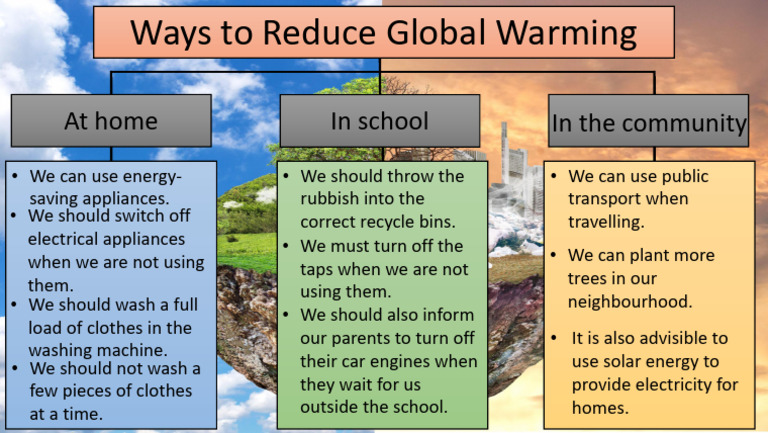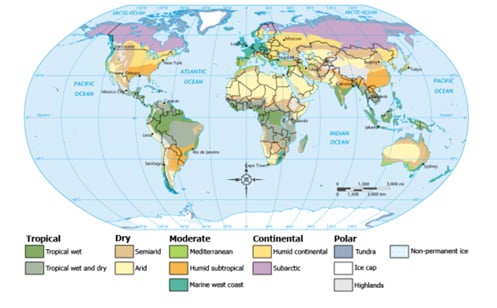Global warming, an insidious phenomenon exacerbated by human activities, is a harbinger of unprecedented challenges to our planet. The accumulation of greenhouse gases in the atmosphere is leading to climatic shifts with dire consequences. While it may be daunting to envision one’s individual impact against the vast backdrop of global issues, the notion that small changes can lead to significant results is not only plausible but imperative. Herein lies a guide to how you can contribute to the reduction of global warming through tangible and actionable steps.
1. Rethinking Energy Consumption: One of the most impactful changes can be made through the re-evaluation of how energy is utilized at home and in your daily activities. Simple actions such as switching to energy-efficient LED bulbs can significantly reduce electricity usage. These bulbs consume up to 75% less energy than their incandescent counterparts and last much longer. Moreover, consider unplugging devices when they are not in use. Phantom energy consumption can account for a notable percentage of an energy bill. With a conscious effort to minimize energy expenditure, individuals can collectively forge a path toward a greener future.
2. Embracing Renewable Energy Sources: Transitioning to renewable energy options—such as solar panels or wind turbines—significantly curtails reliance on fossil fuels. While the initial investment may seem steep, numerous government incentives are available to offset costs. The energy generated through these renewable sources produces no direct carbon emissions. For those unable to install personal systems, choosing a utility company that provides renewable energy options can be a viable alternative. The shift towards clean energy not only mitigates greenhouse gas emissions but also fosters a burgeoning green economy.
3. Mindful Transportation Choices: Transportation is a significant contributor to global emissions, primarily from gasoline and diesel vehicles. To counteract this, consider adopting alternative modes of transportation. Biking, walking, or using public transit diminish your carbon footprint substantially. Carpooling is another effective strategy, allowing you to share the burden of travel with others while simultaneously reducing traffic congestion. If a vehicle is necessary, opt for fuel-efficient or electric models. These conscious choices echo a growing understanding that responsible travel can lead to an exponential decrease in emissions.
4. Diet Modifications: The food we consume bears a profound impact on the environment. The livestock sector is a considerable emitter of methane, a potent greenhouse gas. Reducing meat consumption, particularly beef and lamb, can significantly lessen an individual’s carbon footprint. Incorporating more plant-based meals into your diet, even a few times a week, can contribute to this vital shift. Additionally, sourcing food locally minimizes transportation emissions and supports local economies, fostering a sustainable community. Advocacy for sustainable agricultural practices enhances biodiversity and soil health, thus creating a ripple effect of benefits that extend far beyond individual choices.
5. Waste Reduction and Recycling: Landfills release methane as organic waste decomposes, further intensifying global warming. To combat this, embracing a zero-waste lifestyle is commendable. Start by eliminating single-use plastics, opting instead for reusable bags, bottles, and containers. Composting kitchen scraps diverts waste from landfills and enriches soil, thus promoting healthier ecosystems. Moreover, take the initiative to educate others about proper recycling practices. Communities that recycle effectively demonstrate a commitment to the circular economy, ultimately lessening resource extraction and energy consumption.
6. Conserving Water: Water conservation is intertwined with energy consumption, as significant energy is utilized in the treatment and distribution of water. Simple practices, such as fixing leaks, installing low-flow fixtures, and limiting shower time, can save substantial amounts of water. Beyond individual efforts, advocating for policies that require water-efficient landscaping and technologies can lead to largescale water conservation—an often-overlooked element in the fight against global warming.
7. Advocacy and Education: Engaging in dialog about climate change is crucial. Whether through social media platforms, community gatherings, or educational seminars, sharing information can spark interest and inspire action among peers. Support policies that prioritize environmental protection and seek to hold industries accountable for their emissions. Collective advocacy amplifies individual efforts and creates pressure for systemic change.
8. Supporting Sustainable Brands: The marketplace is populated with many companies that prioritize environmentally friendly practices. By choosing to support these brands, consumers send a powerful message about their values. Investigate the supply chains and production methods of the products you purchase. Opt for companies that utilize sustainable materials, have transparent practices, and actively work toward reducing their environmental impact. This choices, when multiplied across consumer bases, can create a seismic shift in industry standards.
9. Participating in Local Environmental Initiatives: Community involvement further cements the fight against global warming at a local level. Participating in tree planting events, community clean-ups, or sustainability workshops fosters a sense of solidarity and shared responsibility. These initiatives not only improve local environments but also galvanize communities. Networking with like-minded individuals can amplify efforts and encourage the adoption of sustainable practices on a larger scale.
Conclusion: The urgency of addressing global warming cannot be overstated, yet the path forward is replete with opportunities for individual and collective action. The efficacy of small changes—when adopted en masse—can yield transformative results in the battle against climate change. By taking conscious steps to reduce our ecological footprints, we can collectively foster a resilient and sustainable world for future generations. The time to act is now, and every effort counts, reinforcing the notion that indeed, small changes can lead to a monumental impact.








